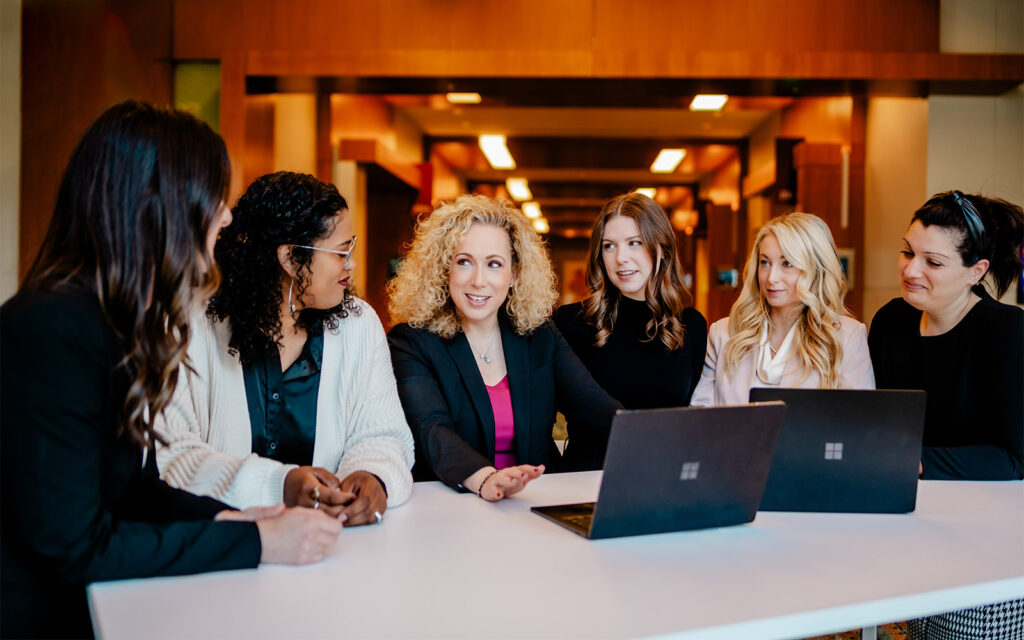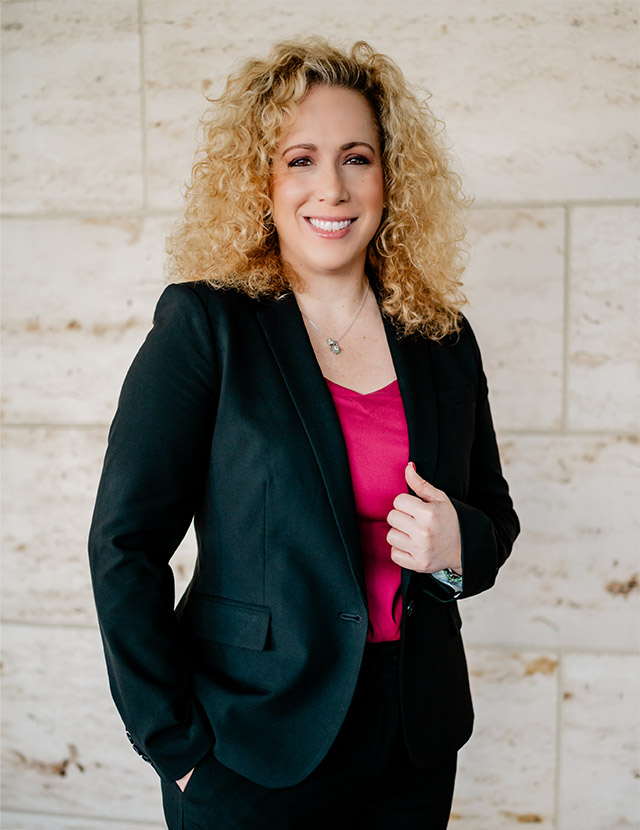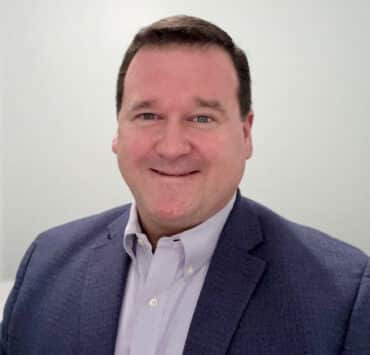|
Getting your Trinity Audio player ready...
|
For Alizah Diamond, advocating for community oncologists is so much more than a career. It’s a calling. The associate general counsel at OneOncology, a fast-growing nationwide network of community oncologists, knows better than most all of the potential obstacles facing independent oncologists who want nothing more than to care for their patients.
Diamond’s father is a community oncologist, and her mother, who helps manage the practice, is a breast cancer survivor. Diamond remembers the moment when a military veteran, whom her father had treated, presented his doctor with a purple heart he had earned in combat, asking her father to accept it as gratitude for saving his life.
“I think community oncologists are often the unsung heroes in the oncology world,” Diamond explains. “They offer connections across generations.”
It is important to understand Diamond’s background to appreciate why she speaks so passionately about what she does. It is why Diamond can routinely be found on calls with physicians after their practices close in the evenings or before they have arrived to work in the mornings.
“My kids know several of our doctors because I’ve been on the phone with them while they’ve been getting ready for school or for bed,” Diamond says with a smile. “My kids are used to it just as I was seeing my own parents go the extra mile to care for their patients. If our physicians need absolutely anything, I want to be there to help.”
Diamond’s own professional background is just as critical. The Georgetown Law alum amassed experience as a litigator and corporate attorney prior to pivoting to healthcare. The skills she honed—negotiation, counseling, and analytical application of the law, to name a few—paired seamlessly with the healthcare and pharmaceutical knowledge Diamond gained by growing up in an oncologist’s home.
As Chief Legal Officer Vinay Bhupathy explains, community oncologists who are unaffiliated with a larger health system often face an uphill battle even though they provide equivalent or better care where patients live. Cancer medications are some of the most expensive on the market, and Medicare reimbursements for physicians have been systematically reduced. The overhead for maintaining even a small practice of a few oncologists is millions of dollars.
“Beyond the cost of drugs, you have to consider all of the necessary equipment and infrastructure required to operate an oncology practice,” Bhupathy says. “They may also need a lab, so they can get more quick and efficient results for their patients. These obstacles can keep physicians from treating patients, pure and simple.”
“I think community oncologists are often the unsung heroes in the oncology world. They offer connections across generations.”
Alizah Diamond
Along with providing working capital, OneOncology provides an incredible network of expertise, support, and people like Diamond and her team, who are ready and willing to assist practices whenever it matters most.
Diamond says, with the experience of working with a network of nineteen practices and hundreds of oncology providers, her team understands the litany of ways community physicians can be taken advantage of, and they are always ready to step in to assure that their clients are treated fairly and best positioned to succeed in an ever-changing market.
“OneOncology understands that oncologists often can’t afford to use outside counsel routinely because of the overhead costs of running a practice,” Diamond says. “They can’t afford to have someone like me in their back pocket, but when you join OneOncology, that’s exactly what you get. I meet with each new practice that joins us and tell them that the OneOncology legal team can help them navigate through nearly any contract or practice-related issue, and if we can’t answer a question for them, we will find the right person at OneOncology who can.”
Bhupathy calls attention to the number of start-ups and tech companies that have managed to make millions of dollars off of the breakthroughs and hard work of oncologists who do not have the resources to protect the value they create. OneOncology’s legal team also understands this and fights for their clients.
“Alizah’s team is out there every day protecting physicians and making sure they retain the rights to the value they’re creating,” Bhupathy says.
Diamond says this is as close as healthcare lawyers get to “treating” patients of their own. She sees her role as an opportunity to enable physicians to do lifesaving work and eliminate all the noise that can surround them while trying to do what they do best: serve patients.
And while her passion is immediately evident, Diamond’s ability to forge connections with others, no matter the circumstance, serves another valuable purpose. She is proud to be the most collaborative attorney you are likely to come up against as opposing counsel. She does not believe there is a gap that cannot be breached or an agreement that cannot be reached with respect and empathy intact.
“My job is to protect community oncology,” Diamond says simply. “That’s what I do. But I don’t have to be adversarial. I want to be a resource for people across both my company, across the practice, and even to opposing counsel.”
Alizah Diamond
“If our physicians need absolutely anything, I want to be there to help.”
Bhupathy says he regularly gets calls about the value that Diamond and her team create. OneOncology is a large organization, and its nimble legal team is always focusing on new ways to serve both the organization and the hundreds of oncologists it represents.
“Alizah and her team are true partners to everyone that they serve,” the chief legal officer says. “They continue to seek out new ways to help doctors just be doctors. We want them to feel that support throughout their day-to-day life. And I know they do.”




